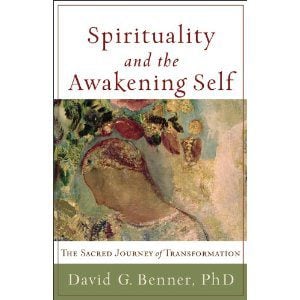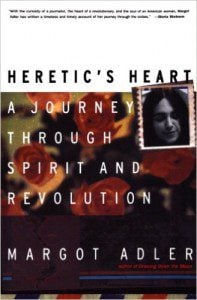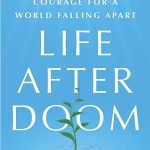(David Benner, Spirituality and the Awakening Self: The Sacred Journey of Transformation, Brazos Press, 2012, 240 pages)
Press, 2012, 240 pages)
I had not heard of David Benner prior to being invited to review his latest book, which is my loss. It turns out he is a well-respected author and editor of more than twenty books at the intersection of psychology and spirituality. And his new book comes with recommendations from Margaret Guenther and Tilden Edwards, two writers on Christians spirituality I have long admired.
Reading through his book, I found little to disagree with and much to admire. Indeed, I was pleased to see that there are many parallels between the major themes of his book and recent themes I have been emphasizing on this blog. For this past Advent, I posted a series on Matthew Fox’s book “Original Blessing,” and Benner writes admiringly of Fox’s “evolutionary spirituality” (147-149). I’m currently working on a series of posts on Jungian Spirituality for Lent, and I was glad to see Benner includes an appendix on both “Dreamwork for Growth and Transformation,” and “Meditation, Prayer, and Awakening.” (Jung particularly highlights dreamwork as a powerful catalyst for spiritual growth.) I also appreciated Benner’s use of James Fowler’s “Stages of Faith,” and Ken Wilber’s Integral Theory, two frameworks I refer to and use frequently.
As perhaps the lynchpin for these matters, Benner writes that mysticism “is the branch of spirituality that has the most to contribute to an understanding and experience of transformation, awakening, and human becoming” (xiii). I couldn’t agree more. The title of my blog is “Pluralism, Progressivism, Pragmatism: A Protestant Pastor in a Postmodern World,” and mysticism invokes the “Pragmatism” part of that tagline. Mysticism and pragmatism both stress firsthand experience. And Brenner’s book includes many ways of facilitating firsthand experiences with God, as opposed to merely trusting the secondhand talk about God from an alleged authority figure.
The famous — and unhelpful — critique of mysticism is that it “begins in ‘mist’, centers in ‘I,’ and ends in schism.” In other words, one’s personal, subjective experience is a sort of fog that cannot always be objectively confirmed by another or through the scientific method (“begins in ‘mist'”). One’s firsthand experience is also generally centered in “I”-statements, what “I” have experienced. But mysticism doesn’t have to end in the schism of individualism. Brenner points toward a mature mysticism which leads not to alienated, navel-gazing narcissists, but to a deep sense of interconnectedness and union with others, with Creation, and with God.
To illustrate his points, Benner includes numerous case studies from his personal practice, as well as examples of major figures from Christian history. He also ends each chapter with transcripts of “Questions and Responses” he heard and gave as he was presenting in lecture form the ideas that were eventually incorporated in this book. This feature helps recapitulate and extend the themes of each chapter.
I look forward to Benner’s future work. I’m always grateful to find another fellow traveler on the journey toward wholeness — or in Benner’s words, the journey toward the awakening self, toward becoming, and toward transformation.
This book review is a sponsored post that is part of the Roundtable at the Patheos Book Club. Visit the Book Club website for more free resources related to this book.
The Rev. Carl Gregg is a trained spiritual director, a D.Min. candidate at San Francisco Theological Seminary, and the pastor of Broadview Church in Chesapeake Beach, Maryland. Follow him onFacebook (facebook.com/carlgregg) and Twitter (@carlgregg).
















